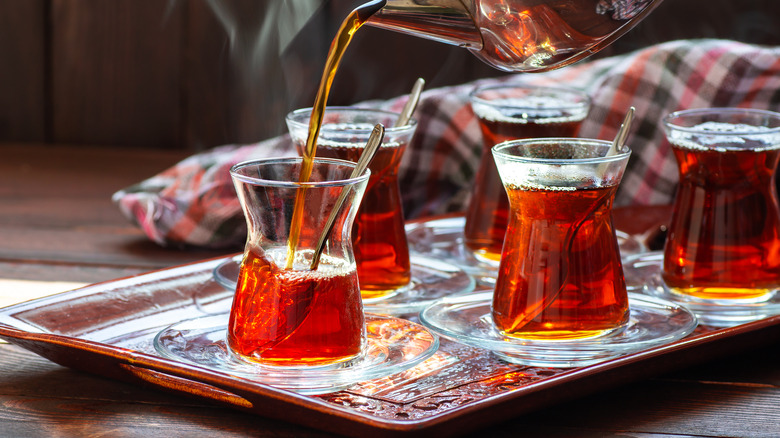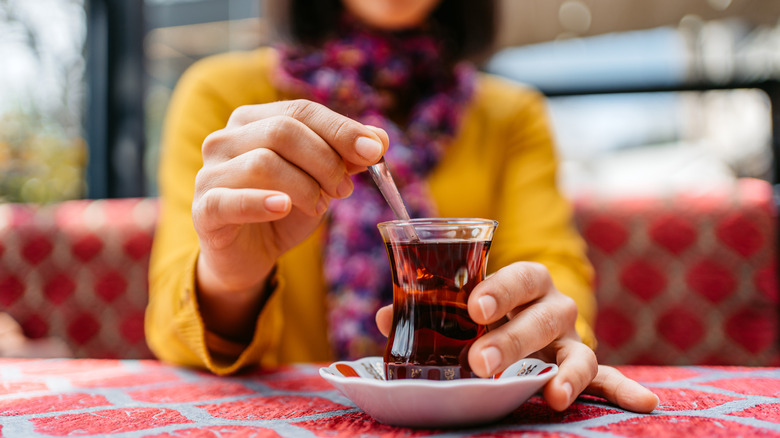Why Turkey Drinks The Most Tea Out Of Any Other Country
Whether it's an afternoon espresso in Italy or a round of unique Oktoberfest beers in Germany, many cultures have storied liquid creations. In Turkey, both tea and coffee are prominent beverages consumed throughout the day at social cafes.
And while the distinct Turkish coffee may be the more well-known export abroad, it's tea that's consumed with greater frequency. In fact, the country's consumption of tea leads all other nations per capita, as per a 2022 study published by Statista. Around 90% of participants noted they drink the beverage regularly. Earlier studies suggest that it's not only frequency but volume as well that Turkish people set the world's pace in, with Turkey also leading in weight consumed per capita.
Many factors influence the nation's status in such a metric, making untangling the precise reason difficult. For one, Turkey itself is a large tea producer. Domestic growth took off in the early 20th century after the dissolution of the Ottoman Empire. With the loss of Yemenese territory, coffee prices rose, leading to an increased interest — and therefore growth — in tea production. From there, the beverage's accessibility took grip and never waned. Tea is an all-day ritual enjoyed widely throughout the nation. As a result, a cup of the flavor-forward brew is never far away.
Tea drinking is an engrained ritual in Turkish culture
Order a tea in Turkey, and you'll rarely receive a mug with a steeped tea bag. Instead, Turkish tea is served in a small, tulip-like glass called ince belli. The tea is poured into the glass from a two-pot boiler system, one brewing the leaves and the other solely heating water for dilution.
This teapot system is found ubiquitously, a source of the brewed beverage in homes and workplaces, as well as cafes and restaurants. Employers are legally required to have two tea breaks a day, and glasses are served at home as a sign of hospitality. Venture to a shop selling pastries like pistachio-filled Katmer and endless baklava variations, and there'll be the black tea to accompany. With such accessibility, its no surprise that tea glasses are always full.
Due to steep importation taxes, most Turkish leaves come from the lush Rize Province bordering the Black Sea. The tea's traditionally bold, with a strong, slightly bitter taste, enjoyed without sugar or milk. Teamakers are starting to pioneer new varieties, however, and a handful of fruit-based sorts are classically enjoyed. However, refer to Turkish tea, and the beautiful dark amber beverage comes to mind. Popular, easy to find, and affordable, it's the brew that's propelled Turkish tea consumption to such a global status.

